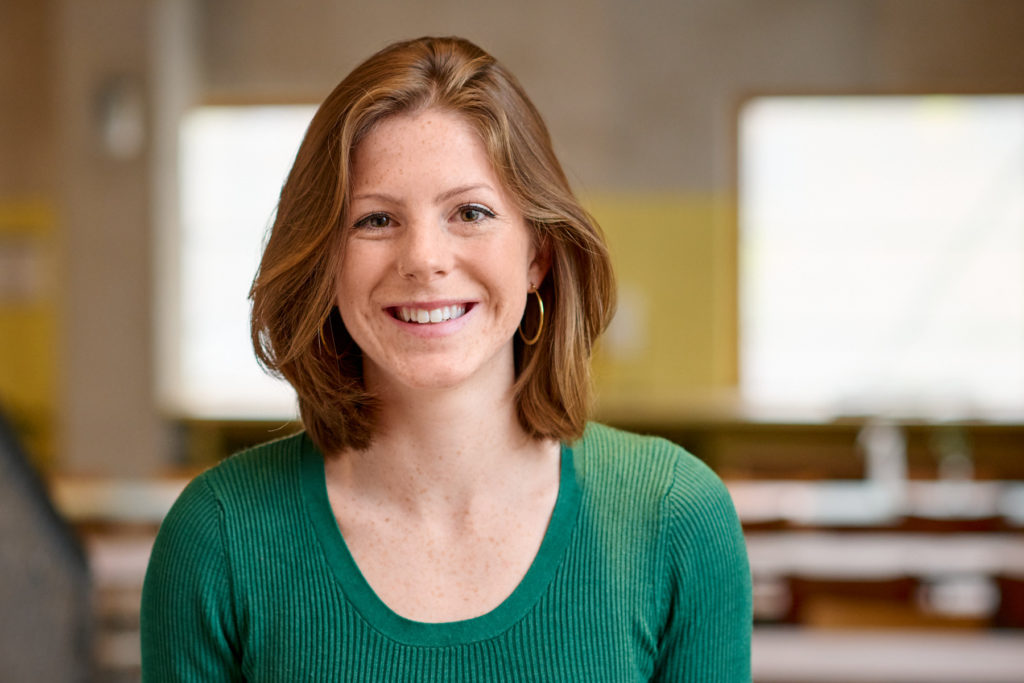How to be a conference organiser and sustainability champion – at the same time
If, like us, you believe in radical collaboration to tackle the world’s wicked problems, then conferences and other large events are a must. This blog touches on the value of organising conferences, before diving into four areas that you should focus on to be a sustainability champion when planning and running events.
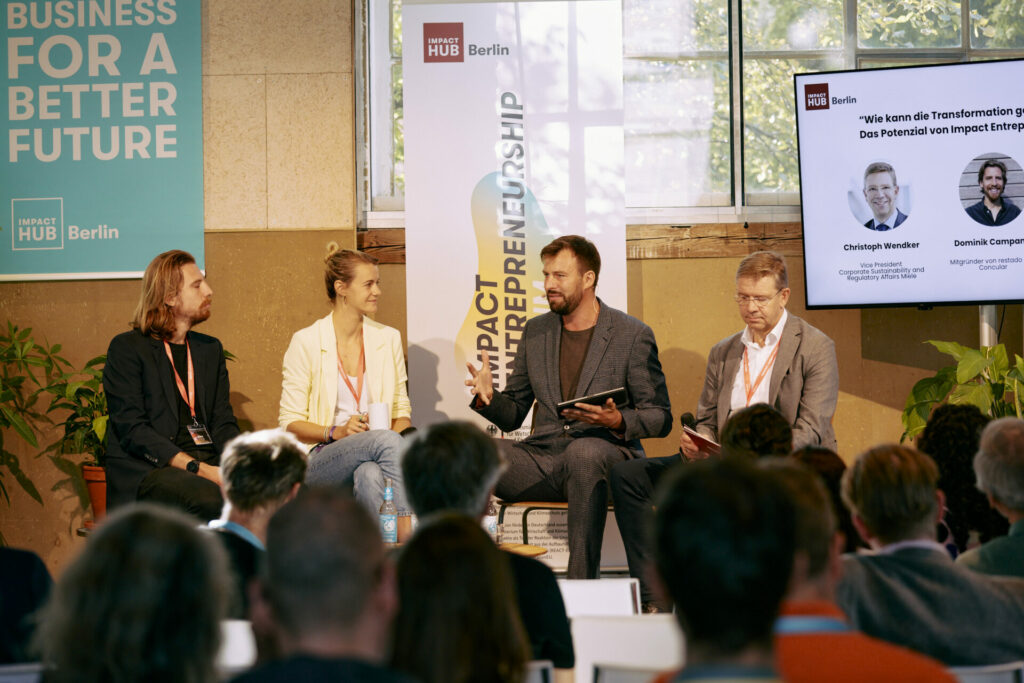
The value of organising conferences
Conferences are not without their criticism. For example, many of you would have experienced or seen frustration at the reinforcement of echo chambers in areas of work that require a far greater reach. It can often happen in the sustainability sector – that conferences generate the same conversations between the same people, with little progress.
However, with an ecosystem-wide approach to organisation, we believe that conferences and other large events can still bring value. By creating a “neutral ground”, where diverse stakeholders can forge personal connections, we can unearth unexpected synergies and enable unforeseen collaboration.
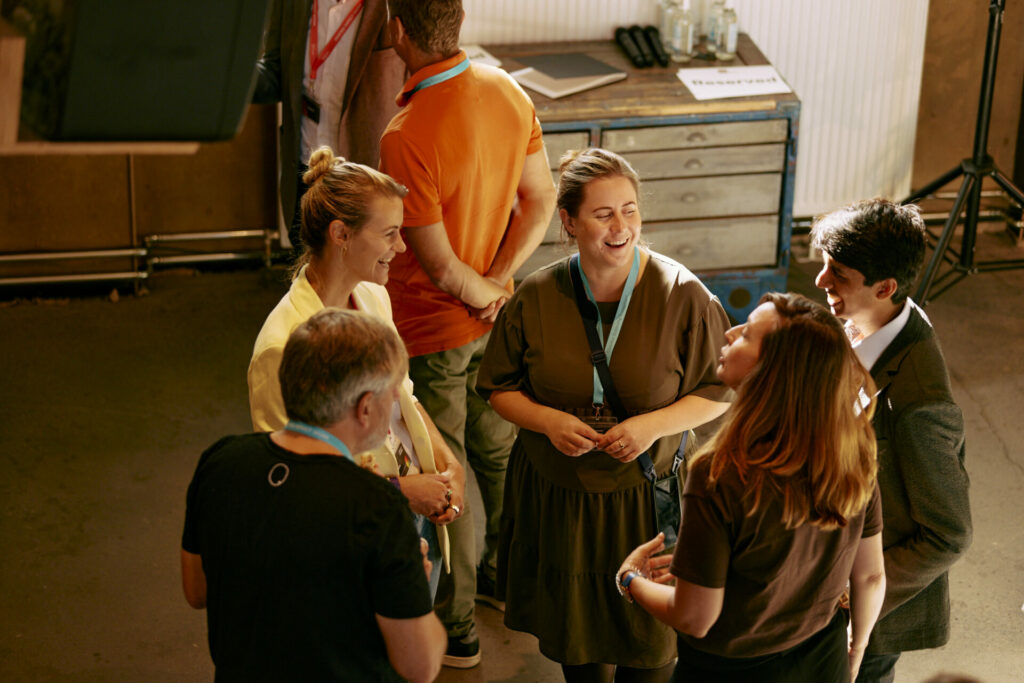
The Impact Entrepreneurship Forum – which aims to do exactly that – is one of the events we organise as part of our daily work to transform our economical system to one which is healthy for people and the planet. Through these events, we open the door to our “unlikely allies”. These are our partners who might need some extra help in their sustainable transformation. For us, they are key to creating real change and destroying the sustainability echo chamber that has faced so much criticism.
Berlin is, in fact, a hub of conferences and events which aim to enable the green transition and transform our economy. From the SET Tech Festival, to the Urban Innovation Forum and the GreenTech Festival – the list goes on. Through these events, we can forge new connections to build better business for a better future.
The challenge of organising a conference sustainably
Organising a conference, though, always comes with a challenge. That is the challenge of organising the event sustainably.
Even when the event is focused on protecting the environment, there is the risk that the event can thwart the organisers’ own goals. For example, at climate tech and other sustainability events that we’ve attended this year, we’ve been disappointed to observe:
- Stands serving coffee made using non-compostable capsules
- Single-use lanyards discarded as guests leave the event
- Nonrenewable material waiting to be torn down
- Only meat-based catering, with no plant-based alternatives
- Most attendees arriving by car or plane
These are common pitfalls in event organisation. Indeed, a study by the Society of Independent Show Organizers found that waste, event construction, energy use and audience mobility are the biggest environmental challenges facing conference organisers.
Luckily, we know some startups who are paving the way for you to walk to walk, as you talk the talk…
How to organise a conference sustainably
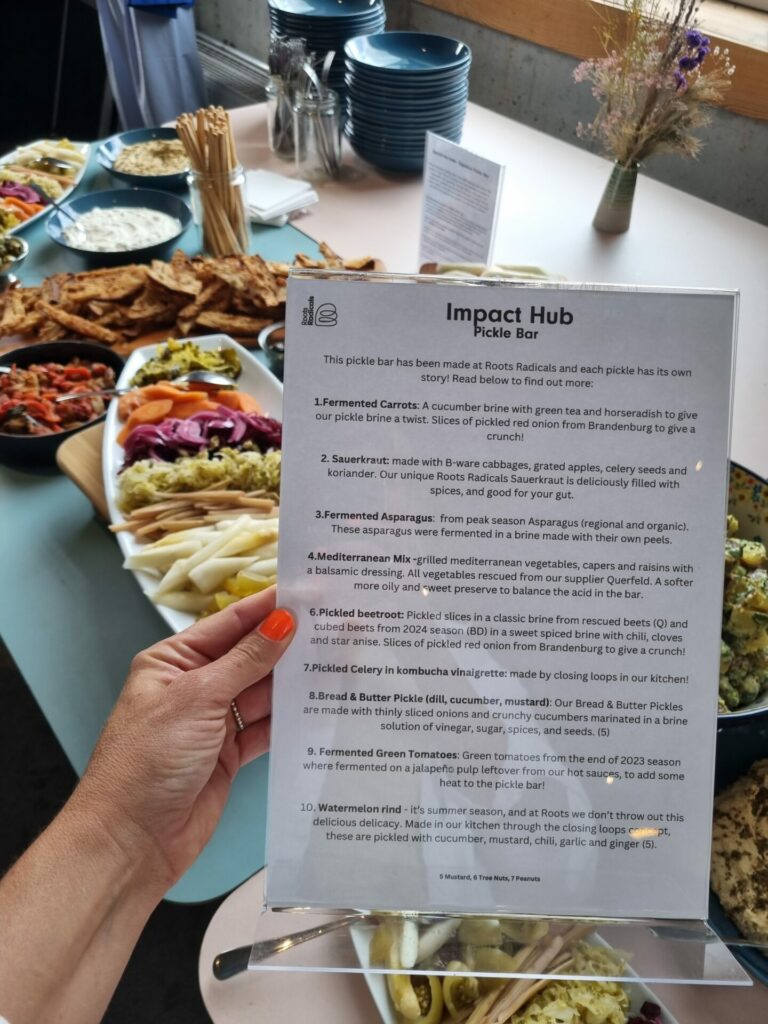
1. Waste
Paper flyers and business cards might slowly be becoming a thing of the past, but that doesn’t mean we’re living in a world of zero-waste conferences. Some conference organisers still place branding above sustainability. For example, creating single-use synthetic lanyards rather than using reusable lanyards made from more sustainable materials (check out Global Mamas offer).
Aside from branded materials, catering is one of the main sources of waste at conferences. Much of this waste accrues from single use containers or cups, and surplus food.
Two alumni from our Feeding the City 2023 programme are driving forward alternative solutions for single use containers or cups.
- AllCup produces waffle-based coffee cups which can either be eaten or composted after your last sip (although, trust me, you won’t want to throw this cup away!).
- Re:Drink focuses on reducing the waste from single-use bottles through their refill system which can be applied for water or other soft drinks.
Another alumni, Roots Radicals – a sustainable and circular food company that aims to reconnect people to good food – recently launched their catering service, which aims to avoid all surplus food. (At events we’ve organised at Impact Hub Berlin, Roots Radicals’ catering is often participants’ highlight of the whole event!)
Roots Radicals not only prepares delicious, nutritional and seasonal food using circular practices, they also present a report with each dish. This report explains where the food came from and the waste you’re saving, simply by eating.
2. EVENT CONSTRUCTION
Event construction for conferences is often highly resource-intensive, involving large scale structures and extensive material use. These materials, including plastics, metals and wood, are not always sustainably sourced, nor can they reliably be recycled after dismantling. In fact, most booths or stands are tailor-made and designed for single-use, and discarded after the event.
ZIRKULAAR Architektur – one of the startups in the current cohort of our Impact Incubator – incorporates multiple sustainable strategies to offer an alternative approach to event construction. With their circular, modular system which is made of recycled and recyclable materials, ZIRKULAAR work with their clients to design everything from small stands to large structures, which can be easily constructed and dismantled, ready to be used again.
“In order to actually make an impact on the way to circular and sustainable events we need to do more than simply change the colour of our fair stands into “green”. True circularity starts with the commitment to give up old patterns and start thinking in a bigger picture. This is why we from ZIRKULAAR Architektur develop reusable structures and buildings. But we are only one part of the solution, the whole industry needs to take part in this transformation.” – Julia Krafft, ZIRKULAAR Architektur
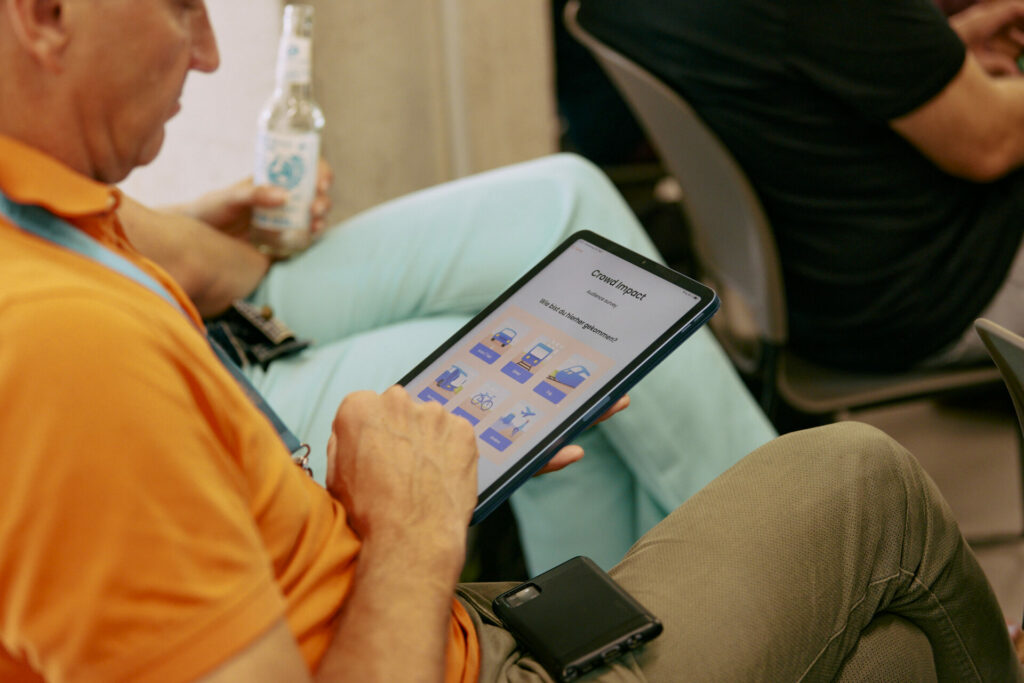
3. Audience Mobility
Depending on the conference, audience mobility can account for up to 80% of total event emissions. In order to help you tackle this, two of our Community Members, Julian Vogels and Laura Kleber, founded Crowd Impact – a digital tool which measures CO2 emissions from audience mobility. Crowd Impact have already supported several music events, such as SUPERBLOOM-Festival and re:publica, to capture and reduce their emissions, using their survey app.
“How can Crowd Impact help make events more sustainable? We help on the footprint side by making the impact of audience travel visible and actionable, and on the handprint side by educating each person that comes into contact with our survey.” – Julian Vogels, Crowd Impact
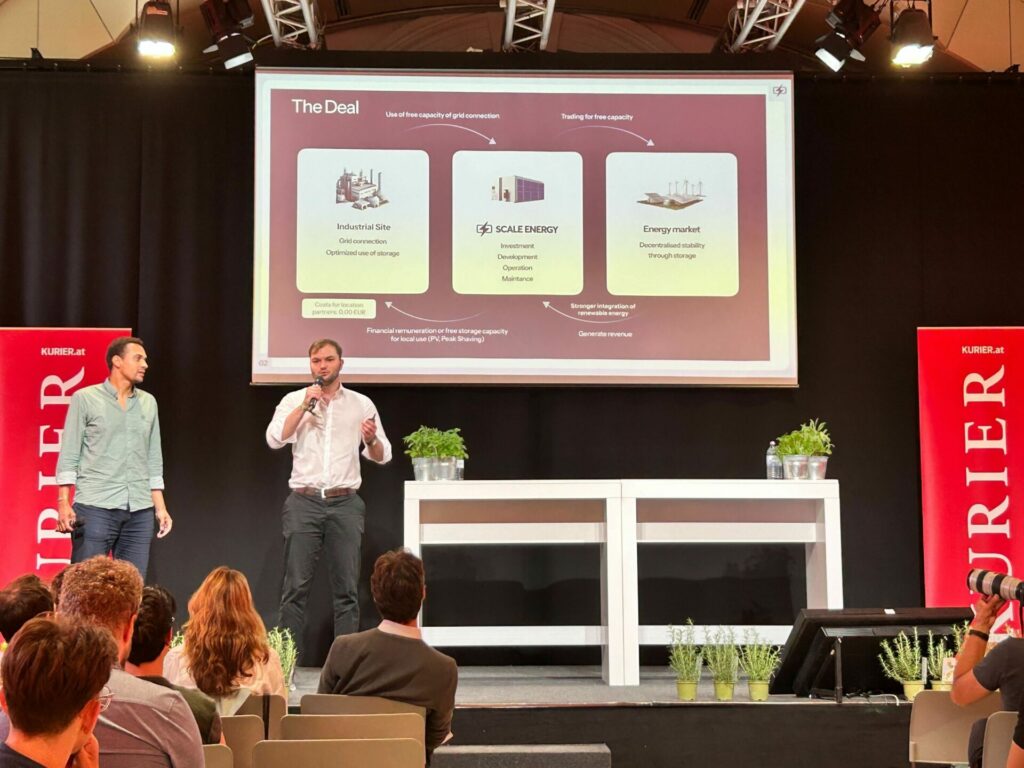
4. ENERGY USE
Of course, the emissions produced by conferences or other events don’t stop when your audience arrives. Event venues use vast amounts of energy to support a one or multiple-day event.
Another team in our Impact Incubator cohort – Scale Energy – who’s decentralised energy storage technology can help accelerate the renewable energy transition, gave their view on how to tackle energy use at conferences:
"Sustainability conferences and events are pivotal in driving awareness and innovation, but there is still much work to be done to ensure these events themselves are truly sustainable. A major area that needs attention is energy usage. Large events often rely heavily on traditional energy sources, which undermines their sustainability goals. At Scale Energy, we provide advanced battery storage solutions that can harness renewable energy and ensure a stable and eco-friendly power supply. By adopting such technologies, event organizers can drastically reduce their carbon footprint and set a benchmark for sustainable practices in large-scale events." – Christoph Koessler, Scale Energy
Walk the Walk
Whether your event is focused on the green transition or another topic, don’t miss the chance to be a sustainability champion by collaborating with startups such as these. Consider how you can lead the way in sustainable conferences by taking a strategic approach to your event organisation. Focus on these four areas to show others how you walk the walk, while you talk the talk: waste, event construction, audience mobility and energy use.
If you’d like to explore how Impact Hub Berlin or one of our startups could help you uphold your sustainability values and organise your conference or other large event sustainably, reach out to ellie.leopold@impacthub.net.
We also offer several event spaces at our circular house in Berlin Neukölln and would be happy to host your next sustainable event plus design it from start to finish!
Check out our event spaces